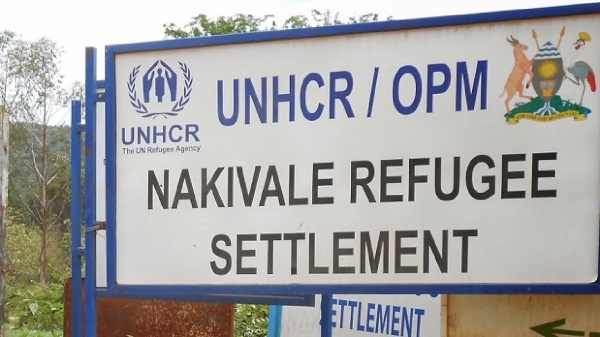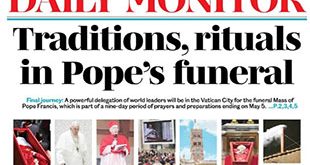
Nakivale, Uganda | THE INDEPENDENT | As the world marks World Refugee Day, the story is told in Uganda of the transformation of many lives at Nakivale refugee camp.
One of many with a story that gives hope to many, is Abel Rwabendaire. He fled the civil war in DR Congo in 2008 with only a plastic bag and no money. He crossed into Uganda and arrived at Nakivale Refugee Settlement. For over ten years, he struggled to make ends meet, relying on refugee cash handouts to support his family of eight.
In 2018, after Equity Bank established a presence in Nakivale, Abel opened a bank account to receive stipends from the World Food Programme.
He initially borrowed Ushs250,000 from high-interest informal lenders to start a grocery store in the camp, selling essentials like rice, sugar, salt, posho, beans, and soda. Later, he secured a Ushs300,000 loan from Equity Bank at a 15% annual rate. Over time, he borrowed a total of Shs4 million, expanded his shop, and increased his monthly profit tenfold to over Ushs10 million.
Equity Bank has opened 125,000 bank accounts in nine of the 13 refugee settlements in Uganda, which host around 1.4 million refugees from South Sudan, DR Congo, Rwanda, Burundi, Eritrea, and Somalia. “Thanks to banking, my life has improved,” Abel says. “I would like to stay in the camp and expand the shop further. The market is here.”
Abel is one of many refugees who have turned into entrepreneurs through Equity Bank’s Social Protection program, which is gradually fostering business growth in refugee camps.
Abel Rwabendaire’s transformation from refugee to entrepreneur showcases the power of financial support.
After escaping conflict, Abel now runs a thriving grocery in Nakivale, all thanks to #EquityBankUganda‘s loan programs. #WorldRefugeeDay pic.twitter.com/NLtNJCwwDk
— Dr Kizza Blair (@blair_kizza) June 20, 2024
Beatrice has a similar story.
Beatrice settled in Nakivale in 2012 after fleeing violence in Burundi. In 2020, after maintaining a bank account for two years with her refugee identity papers, she borrowed Shs300,000 from Equity Bank to start a bakery. She repays Shs50,000 monthly.
“It was a pleasant surprise to find a bank in the refugee camp,” Beatrice says. “Without Equity, life would have been much harder.” Today, she has capital worth Shs1.7 million and employs two people to sell her mandazi throughout Nakivale refugee camp.
Despite the entrepreneurial spirit among refugees, access to finance remains limited, with only a few banks present in the camp. Financial literacy is still low, causing many to rely on informal lenders.
Nonetheless, Equity Bank MD Elizabeth Mwerinde remains hopeful. The bank is actively providing financial literacy training to refugees in nine of the 13 camps in Uganda.
Mwerinde believes that this free service will help more refugees achieve financial independence and live dignified lives. Equity Bank aims to open thousands more bank accounts across all 13 settlements, which currently host about 1.4 million refugees. “This is social investment,” she states.
Through The Social Protection Pillar, Equity Group Foundation intends to reduce social and economic hardship in East Africa through direct cash transfer programs. These programs create financial inclusion and independence, enabling beneficiaries to manage their spending and savings through bank accounts and biometric smart cards. The financial literacy training offered under this pillar, equips beneficiaries with knowledge and skills for effective financial management.
The bank has partnerships with the Government of Uganda and International Organisations including UNHCR and WFP allow Equity Bank Uganda and the wider Equity Group to scale its offerings and capabilities.
A first of its kind in Uganda, Equity bank’s VSLA credit facility is offered to refugee saving groups as a lump sum rather than to individual members in the group. With this product, the beneficiaries can engage in various productive and profitable business ventures which have improved their livelihood.
 The Independent Uganda: You get the Truth we Pay the Price
The Independent Uganda: You get the Truth we Pay the Price



